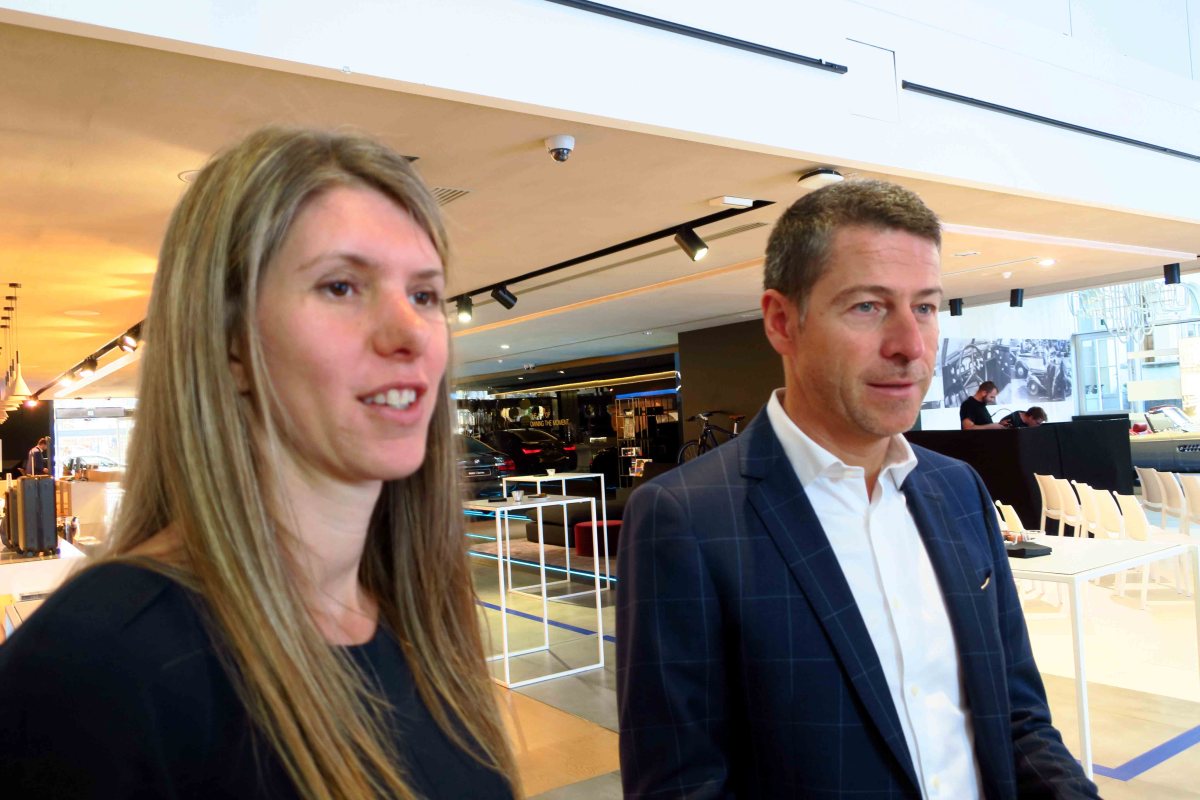
Recently BMW Group Belux organized a very interesting conference at their Brand Store in Brussels, where Eddy Haesendonck, President & CEO of BMW Belux (here on the right) gave us a status update on the world wide figures and trends of the BMW Group, followed more specifically by the figures and trends in Belgium for BMW Group Belux.
But the focus at this meeting was also on the outlook he presented, namely on how we prepare ourselves for the mobility of the future. This is where we will focus on mostly in this report.

Interesting was also the presentation by Els Ampe, (see first photo) alderman Public works, Mobility and Dutch speaking matters in Brussels, on the mobility needs of the city of Brussels. More on this in the second part of this report, which we will present soon here too in these columns.
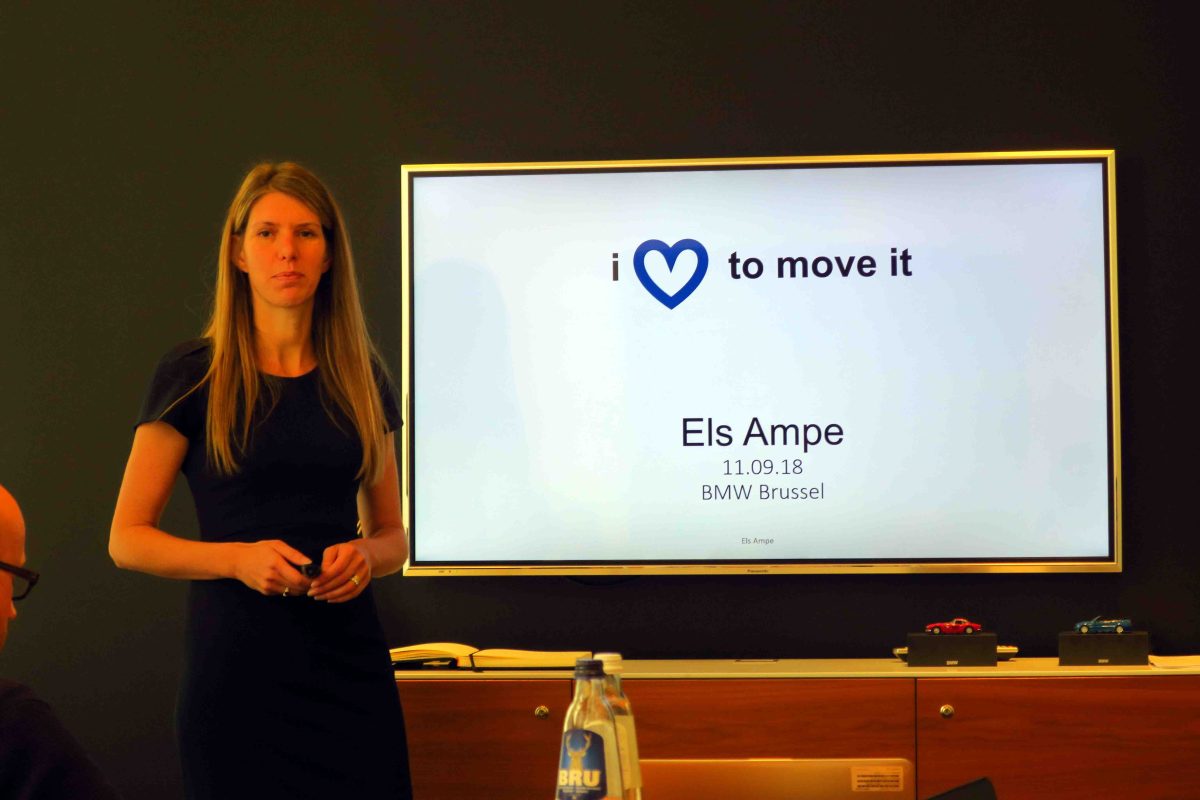
Just read on…
Hans Knol ten Bensel
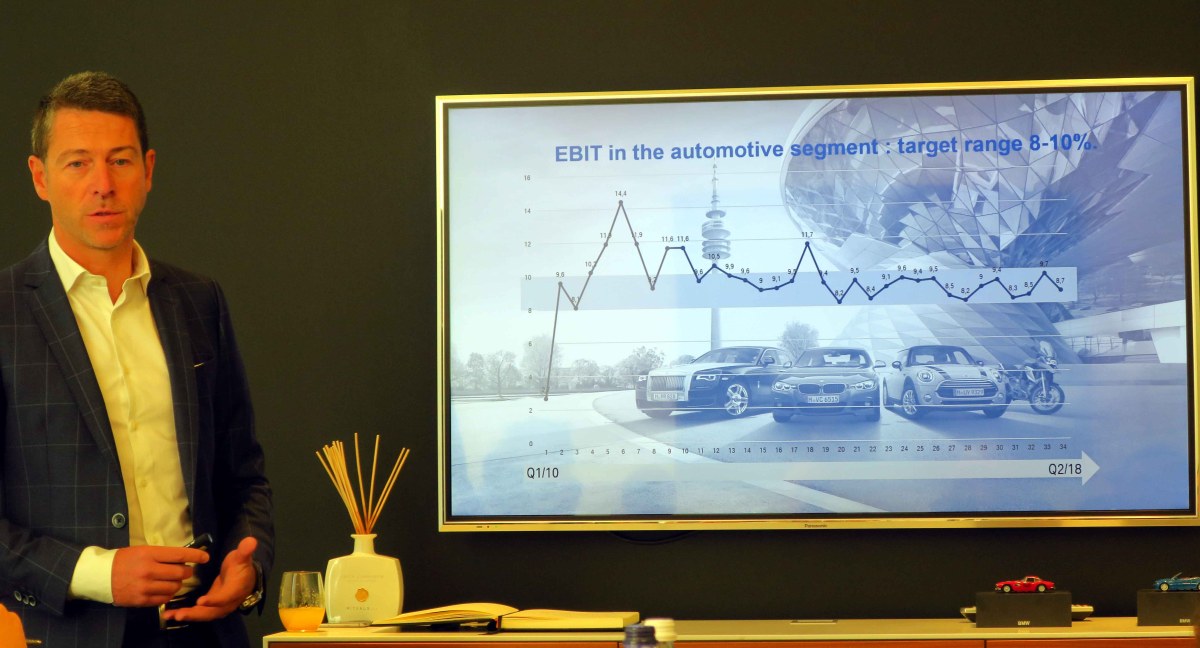
Eddy Haesendonck opened his presentation by pointing out that the BMW Group worldwide succeeds in maintaining its EBIT target range of 8-10 % in the automotive segment.

Worldwide sales of BMW Group vehicles continue to grow, with more vehicles delivered to customers last month than in any previous July. A total of 181,051 (+0.2%) BMW, MINI and Rolls-Royce vehicles were sold in the month, bringing year-to-date sales up to 1,423,565 (+1.6%).
In the first seven months of the year, deliveries of BMW Group electrified vehicles totaled 71,310 vehicles worldwide, an increase of 40.6% on the same period last year. July sales of BMW i, BMW iPerformance and MINI Electric vehicles totaled 10,649 (+30.9%), confirming the BMW Group’s position as a leading global provider of premium electrified mobility.
In Belgium, BMW has grown by 33,4 % over the period between 2013 and 2017. In July and August this year, BMW is #1 in the premium segment, and is #4 in the overall Belgian market. The MINI growth has even been more spectacular: +50,2 % between 2013 and 2017. MINI registrations until August this year have grown by not less than 17 %.
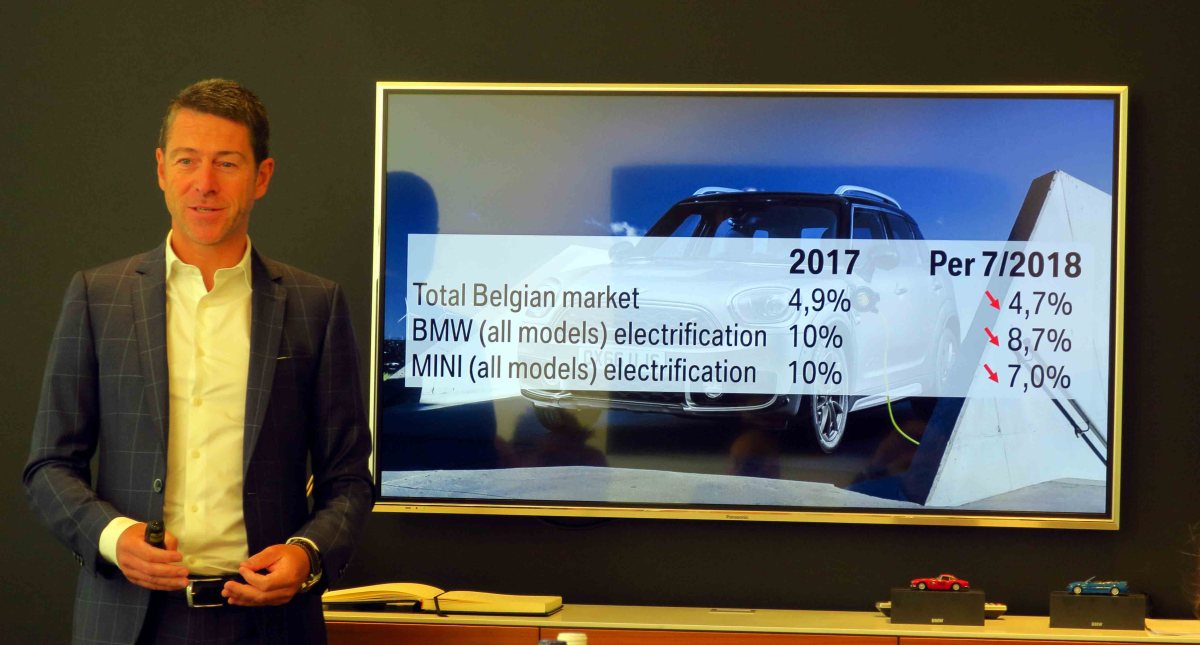
On the Belgian market, the electrification goes at a slow pace, for different reasons. Both for BMW and MINI last year, electrification reached 10 % of the model range sold, and this share is now diminishing: 8,7 % until July for BMW models, 7 % for MINI.
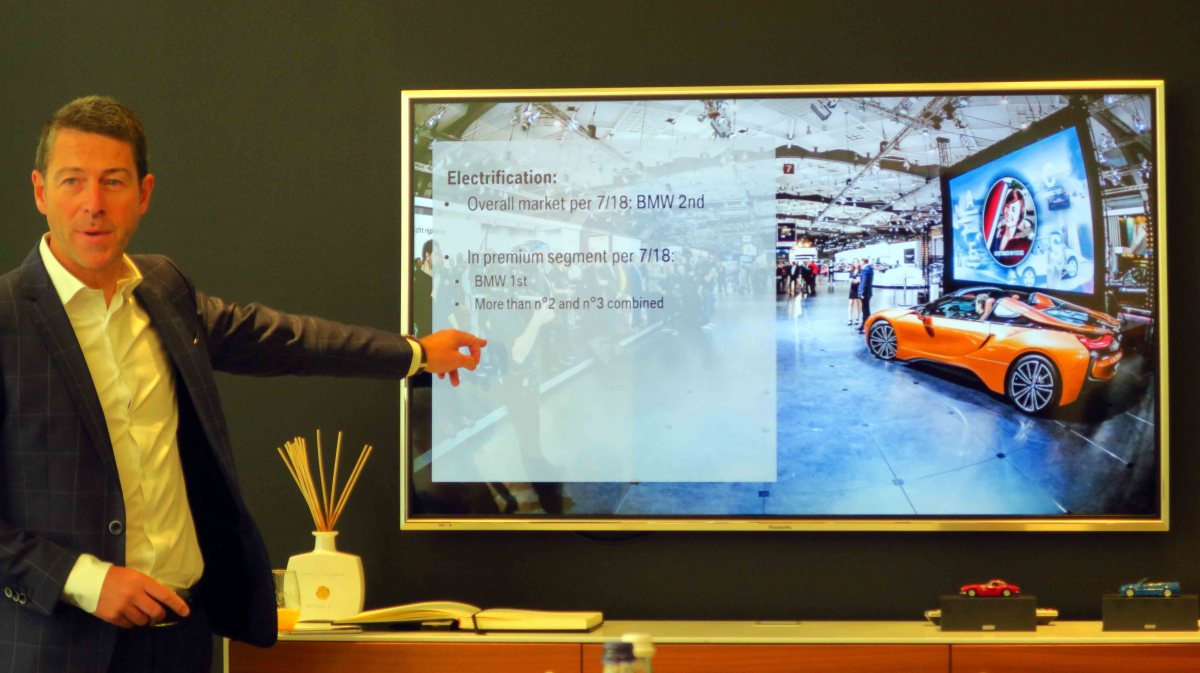
The following image shows however that on electrification, BMW occupies the 2nd place in the overall market, and in July this year BMW is 1st, and sells more than n° 2 and °3 combined…
Today, BMW offers already the widest electrical range on the market with seven electrified models, including the innovative 100% electric BMW i3. Nevertheless, the company is also looking ahead and by 2025 it will offer no less than 25 electrified models, twelve of which will be fully electrically powered. In the autumn of 2019, a 100% electric MINI will come on the market, while the BMW iX3 will be the first emission-free Sport Activity Vehicle of the group by 2020.
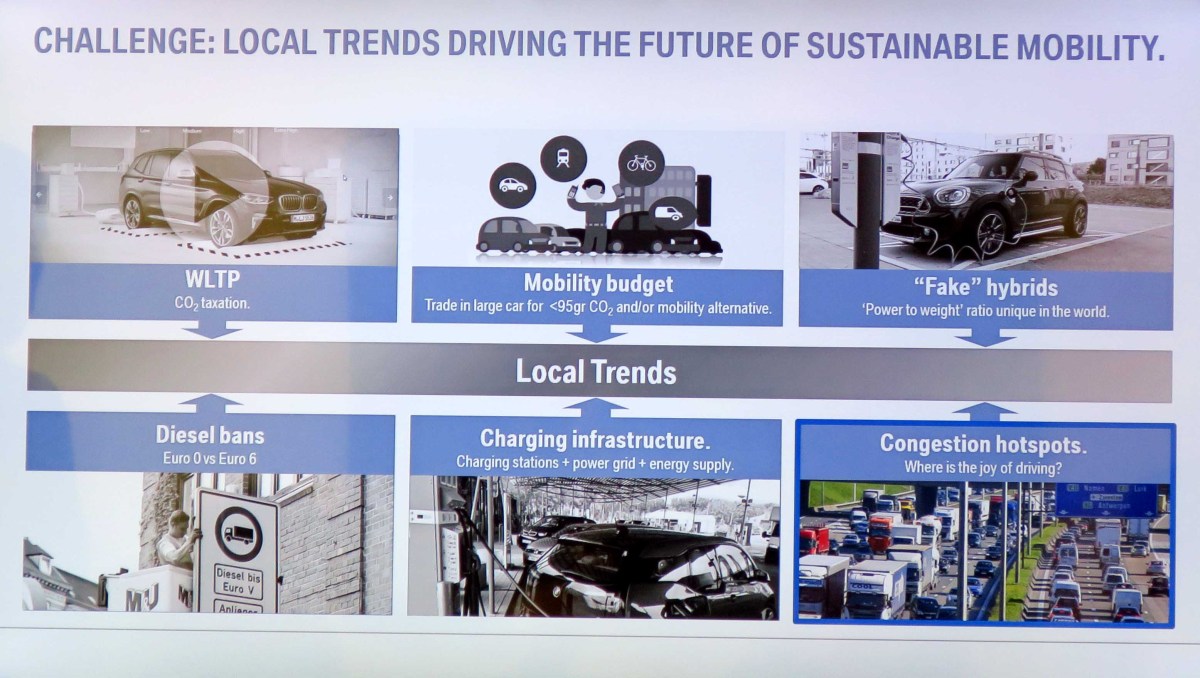
There are however still many challenges and trends driving the future of sustainable mobility. There is the CO2 taxation, then the mobility budget scheme, where the company car user is invited to trade in a large(r) car for a vehicle with less than 95 gr CO2 emissions and/or a mobility alternative. But there are further impediments. Detrimental to electrification for instance is the introduction of the concept of “Fake” hybrids in the Belgian fiscal legislation, which uses a disadvantageous power to weight ratio which is unique in the world. We have not to mention the Diesel ban in urban areas, or the insufficient charging infrastructure. The Dutch city of Arnhem has more charging points than the whole of Belgium.
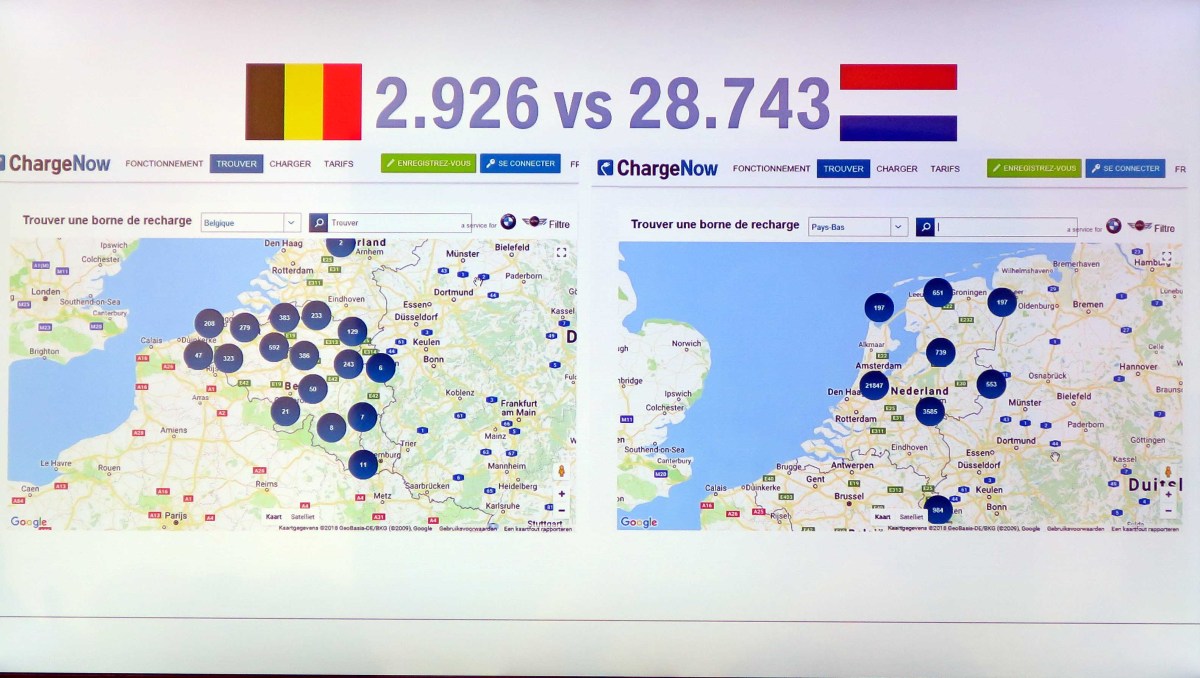
The following image shows that Belgium counts 2.926 charging points vs. 28.743 in the Netherlands…
Picture into the future…
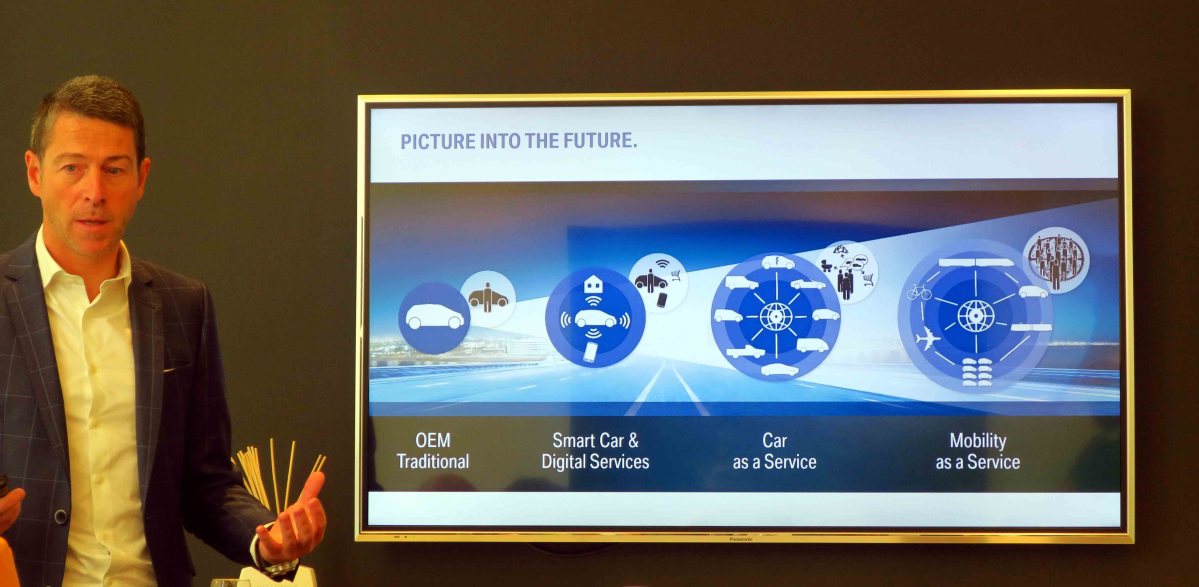
Eddy Haesendonck further pointed out that the path road towards future mobility consists of four important steps: from the traditional individual car ownership we will evolve towards the smart car and digital services, a transition which has already set in. We will then further treat the car as a service, with different types of vehicles being set at your disposal in function of your mobility needs, and in the final stage we will evolve to a fully adapted and “ideal” mobility, encompassing all forms of transportation, from bicycles to motorcycles, including further cars, trains and planes…
In making this transition, car manufacturers like BMW are not part of the problem, but part of the solution.
Mobility shifters…
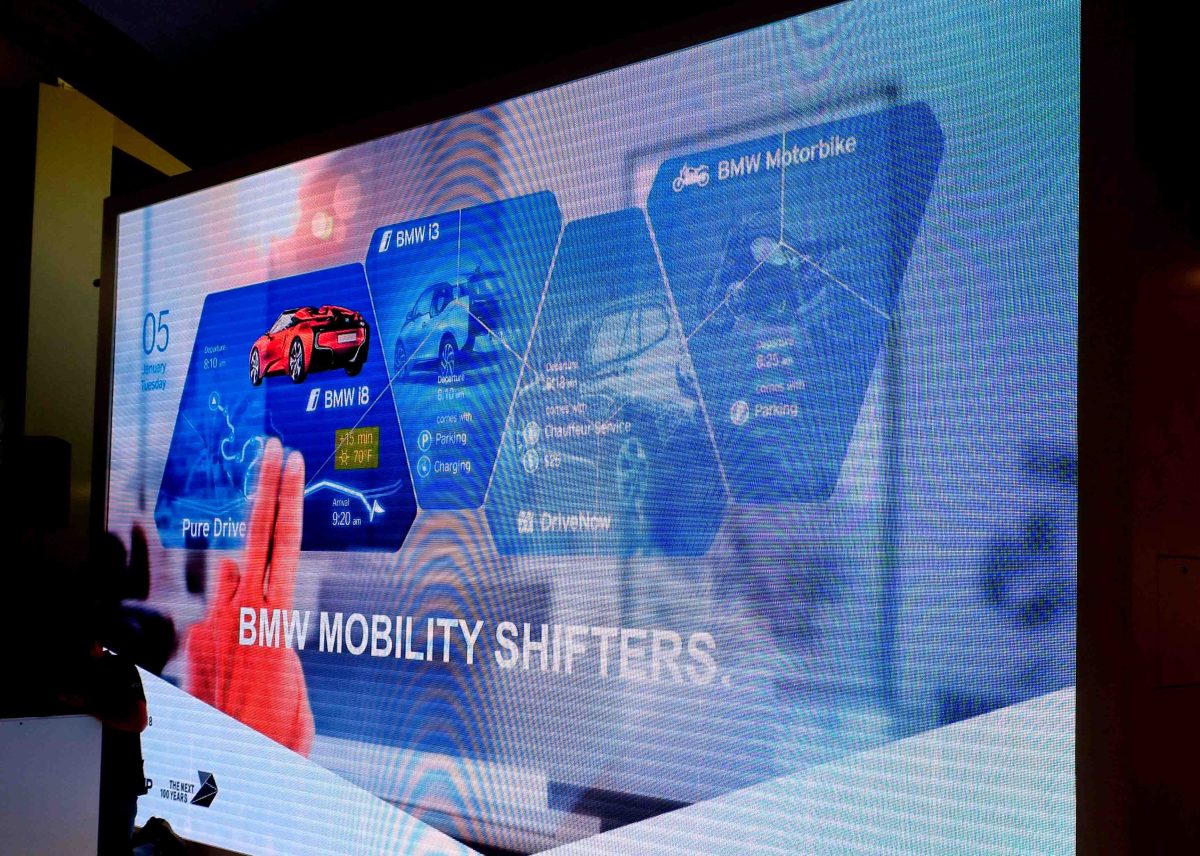
To put this motto into practice, BMW also reinvents itself towards its clients. To serve its business customers even better, BMW Belux is offering them a tool to map and study their individual mobility needs via https://www.bmwmobilityshifters.be.

The vast experience and knowledge in the field of valuation, emission, motorization, but also in the area of individual transport, allows the employees of BMW Belux to advise the most suitable mobility service – or combination – for all employees of the customer.
Where a modern diesel engine remains the best option for those customers who travel a lot outside the city, an electrically driven vehicle is better adapted to urban use. A hybrid engine or petrol engine each have their clear merits. For occasional users, a shared car can be a good solution. The experience that BMW has gained with DriveNow is here an additional asset.
“We are ready today to meet the challenges of individual premium mobility, with innovative and even emission-free solutions where possible, adapted to the needs of every type of user. These solutions not only enhance the efficiency of individual trips, but also improve air quality. On top of that they also increase the driving pleasure, “concludes Eddy Haesendonck.
Emission-free: in factories as well as dealerships…
On top of a range of vehicles with extremely low emissions (and even without the BMW i3), BMW has already equipped two of its factories with renewable energy.
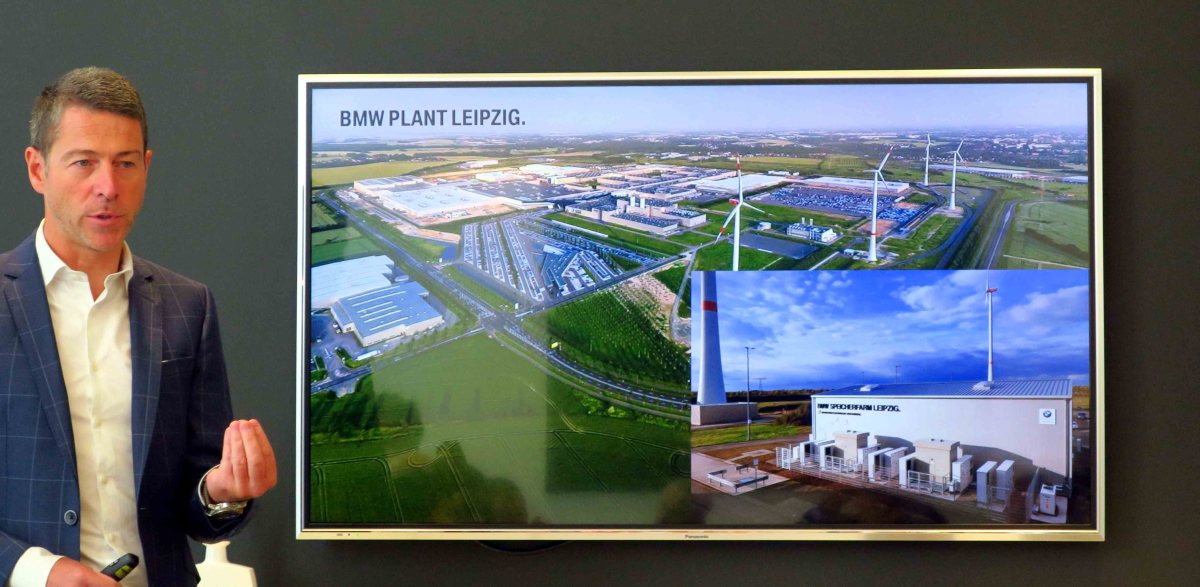
In addition to the BMW i3 and BMW i8 plant in Leipzig, the South African factory in Rosslyn is also 100% powered by renewable energy. The target is ambituous: by 2020, all BMW Group factories will run entirely on renewable energy.
In Belgium and Luxembourg, too, BMW has decided to choose a higher gear towards renewable energy. In 2020, every BMW concession will use renewable energy. All concession holders have committed themselves to installing solar panels, following the example of BMW Centrauto in Wommelgem and the BMW Brussels branch. The solar energy will not only be used by the dealer, but will also be used by customers and non-customers to charge their electric vehicles.
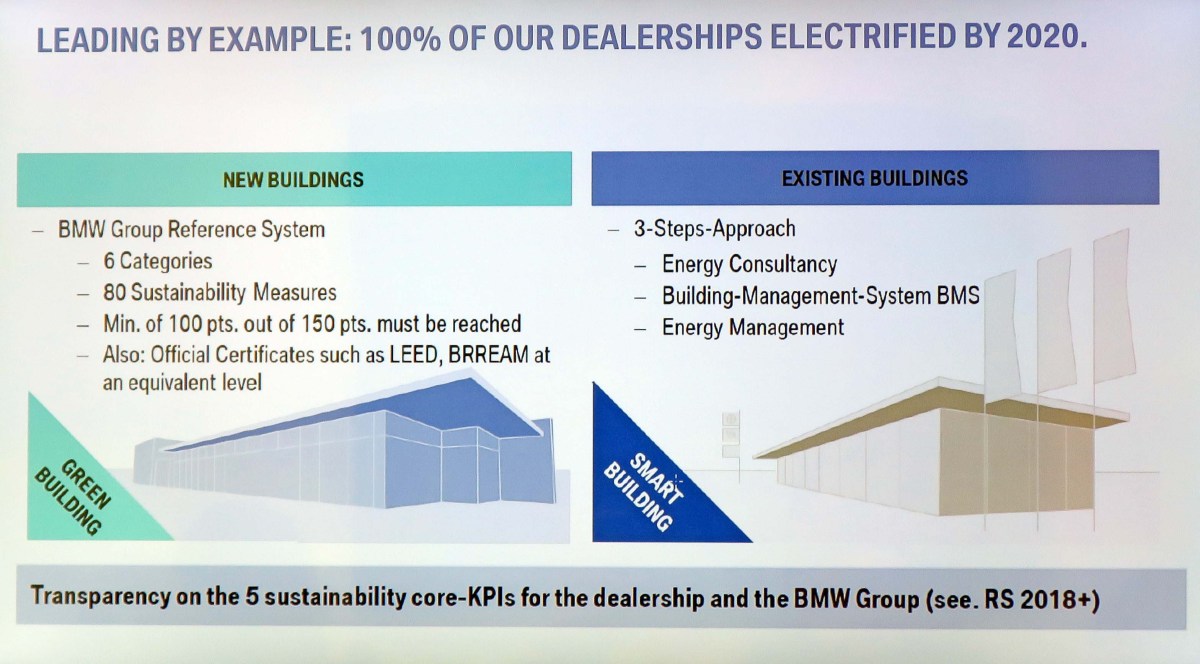
In part 2 of this report, we will come back to you with info on the presentation of Brussels Alderman Els Ampe, on the mobility needs of the capital of Europe.
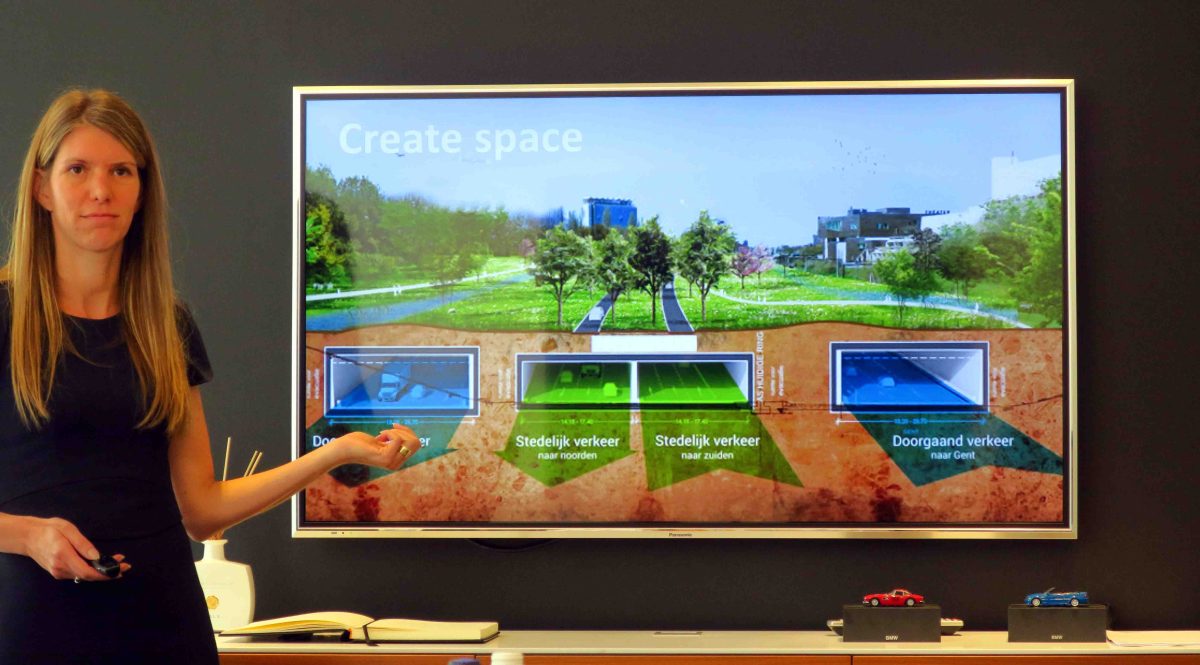
Stay tuned!
Hans Knol ten Bensel